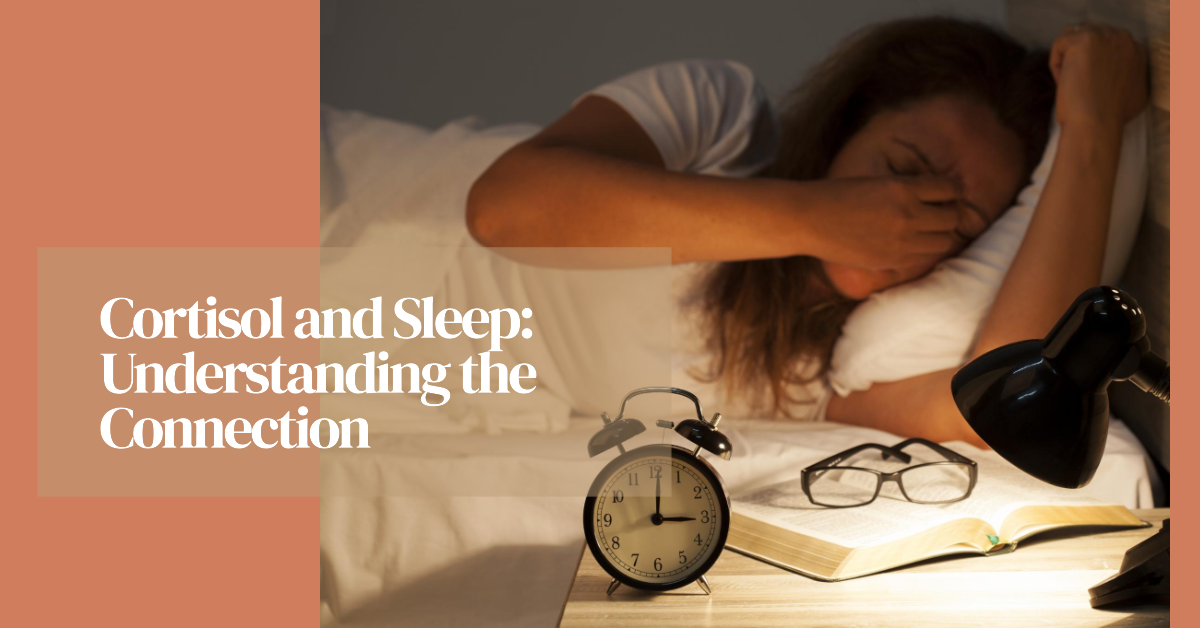Cortisol and Sleep: A Deep Dive into Your Midnight Woes
Are you tired of tossing and turning at 3 a.m., wondering why sleep eludes you? It's time to explore the fascinating connection between cortisol and your sleep patterns. In this in-depth blog, we'll take you on a journey through the world of cortisol, the stress hormone, and how it may be affecting your midnight woes. Get ready to unlock the secrets to better sleep by understanding your body's intricate sleep cycle and learning effective stress management techniques.

Cortisol and Its Role in Your Midnight Woes
Sleep is a precious commodity, and when it's disrupted, it can have a profound impact on your overall well-being. Many people find themselves wide awake in the middle of the night, unable to fall back asleep. If this sounds familiar, cortisol, often dubbed the "stress hormone," might be the culprit.
Cortisol plays a pivotal role in regulating our body's response to stress. It's a hormone produced by the adrenal glands, and its levels typically follow a circadian rhythm. Cortisol levels are at their highest in the morning, helping you wake up and stay alert throughout the day. As the day progresses, cortisol levels gradually decline, reaching their lowest point at night, allowing you to unwind and fall asleep.
The Cortisol-Sleep Connection
However, when you're under chronic stress or experiencing prolonged periods of anxiety, your cortisol levels can become dysregulated. This can disrupt your circadian rhythm and lead to cortisol spikes when they should be at their lowest, such as in the middle of the night. When cortisol levels rise at 3 a.m. instead of staying low, you may find yourself wide awake, your mind racing with worries and thoughts.
So, how does cortisol disrupt your sleep?
-
Increased Alertness: Elevated cortisol levels signal to your body that it's time to be alert and vigilant. This alertness can make it challenging to fall asleep or return to slumber after waking up.
-
Suppressed Melatonin: Cortisol and melatonin, the hormone responsible for sleep regulation, have an inverse relationship. When cortisol is high, melatonin is low, making it difficult to enter and maintain deep sleep.
-
Vivid Dreams and Nightmares: Elevated cortisol can lead to more vivid dreams and even nightmares, which can be disturbing and wake you up during the night.
-
Reduced Sleep Quality: Even if you do manage to stay asleep, the presence of cortisol can result in fragmented, shallow sleep, leaving you feeling tired and groggy in the morning.
How to Manage Cortisol for Better Sleep
The good news is that you can take steps to manage your cortisol levels and improve your sleep quality. Here are some practical strategies:
-
Stress Reduction Techniques: Take some time to unwind with stress-relieving activities like meditation, deep breathing exercises, or yoga. These calming practices work wonders in bringing down cortisol levels and creating a sense of calm and relaxation.
-
Establish a Sleep Routine: Try your best to stick to a consistent bedtime and wake-up time, even on weekends. This routine helps your body establish a steady sleep pattern. Consistency can help regulate your circadian rhythm and cortisol levels.
-
Limit Caffeine and Alcohol: Reduce your caffeine and alcohol intake, especially in the afternoon and evening. These substances can interfere with sleep and cortisol regulation.
-
Regular Exercise: Make sure to include regular physical activities in your daily schedule. This means finding time to move your body regularly. Exercise can help reduce stress and improve sleep quality, but avoid strenuous workouts close to bedtime.
-
Create a Sleep-Friendly Environment: Make sure your bedroom is nice and dark, pleasantly cool, and as quiet as can be. This sets the stage for a peaceful sleep environment. Invest in a comfortable mattress and pillows to optimize your sleep environment.
-
Limit Screen Time: Steer clear of screens like phones, tablets, computers, and TVs for at least an hour before bedtime. The blue light they emit can mess with your body's internal clock, making it harder to fall asleep.
-
Seek Professional Help: If your sleep problems persist, consider consulting a healthcare professional or sleep specialist. They can assist in finding any hidden problems and suggest the right solutions for you.
Conclusion
Cortisol's role in your midnight woes is a complex one, but understanding how it interacts with your sleep cycle can empower you to take control of your sleep patterns. By managing stress, adopting healthy sleep habits, and seeking professional guidance when needed, you can restore harmony to your sleep and wake up feeling refreshed, even at 3 a.m. Remember, a good night's sleep is not a luxury; it's a necessity for your physical and mental well-being. Sweet dreams await – reclaim your peaceful nights!









